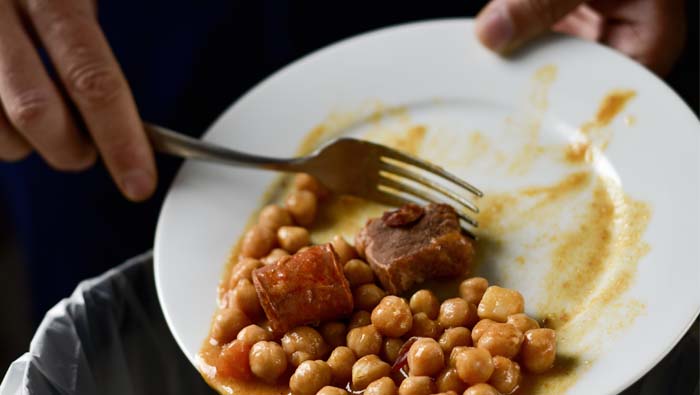
Muscat: Food accounts for 27 per cent of municipal waste and its cost is estimated to be OMR57 million in a year, the Oman Environment Services Holding Company (Be’ah) has disclosed.
Be’ah Vice-President Mohammad Al Harthy said the amount of food wasted was generally higher during Ramadan as compared to the rest of the year. He called upon people to try to cut food wastage during the month of fasting.
“Do you know that 27 per cent of municipal waste consists of food? And the cost of the food waste is approximately OMR57 million. This means that this waste is enough to cover 18 per cent of the annual food demand in the Sultanate,” Be’ah disclosed in an official video release.
“This study, that found 27 per cent of the waste to be food and that it costs around OMR57 million, was based on an analysis of landfills. Sultan Qaboos University (SQU) did a similar study and recorded findings that were almost identical. You’d be surprised that food waste spikes during Ramadan. What one can do to cut this waste is to buy only what one needs and not exceed one’s requirement,” he said.
Al Harthy claimed that a good way to bring down the food waste was to raise awareness about the issue among the masses. “At the end of the day, it goes back to people. What we can do is raise awareness and ask them not to waste food. Moreover, authorities can try to use this waste to produce compost for farming or biogas to derive energy out of it.”
“We, at Be’ah, try to cut food wastage by managing our events better. We get only the amount of food that is required. We also encourage people to take the food that they can’t eat right away in containers to their homes. But we contribute to some of the waste and should do better,” he added.
The Environment Society of Oman (ESO) also called upon people not to waste food.
“Some 27% of waste is food waste. That’s huge. Let’s work together towards reducing this percentage. Only prepare the amount of food needed and store leftovers properly for consumption later,” an ESO statement said. Dr Mohanad Hasan, operations manager at Mawashi Oman, a company that maintained farms and meat processing units, said that food wastage was a problem of inefficient management of food and, partly, a cultural one as well.
“We have this habit of wasting food here in Oman. Culturally, some Arabs and Muslims do that, despite Islam telling us specifically not to waste food. When guests visit their houses, people make or buy food in excess to let guests know they are welcome. It is seen as being courteous, but really, it’s not,” said Hasan.
“Moreover, food wastage becomes worse during the month of Ramadan. We should remind people that Islam asks us not to waste food. If you want to prepare food, make sure you make just enough for all people and not more than what is required, especially during Ramadan. During this month, people should follow Islam and that means reducing food wastage too,” he added.
“We should use the media to get the message out that people should only buy and prepare the food they will consume and nothing extra,” said Hasan.
He added that it was not just prepared and processed edibles, but food in other forms as well. He said that at his company, they tried to manage whatever waste they produced efficiently.
“At our company, Mawashi Oman, we try to manage our waste as best as we can. We breed livestock and process meat and much of the waste that we produce, we simply sell. This includes skin and other by-products,” he said.
“However, ideally, we should have a rendering plant to convert animal waste into industrial fats and oils. We can use other waste to make biogas and derive energy out of it,” the operations manager remarked.